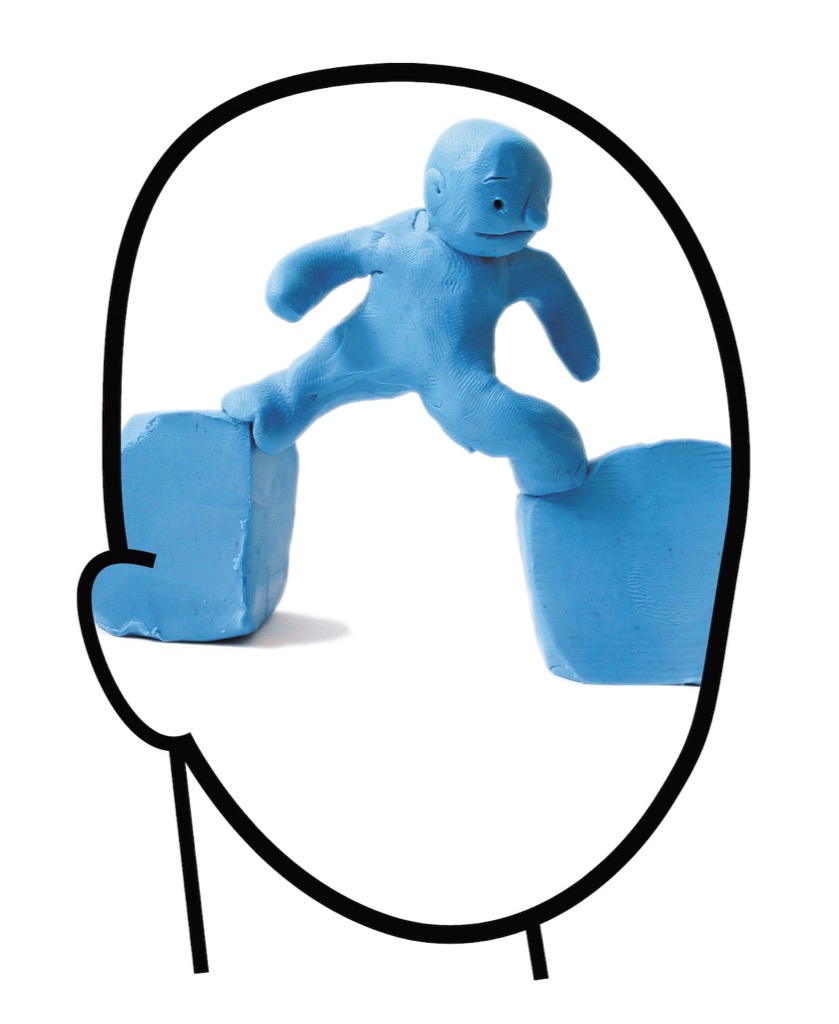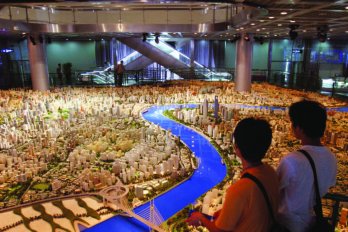When I was two-years-old, my mother was pregnant, my two older brothers were beginning primary school, and the idea of having to flee Eritrea was quickly becoming a reality. It was decided that my father would flee first due to the war between Eritrea and Ethiopia and the fact that he was a man of fighting age. My parents strategically mapped his journey and our eventual reunion in a foreign land. Three years later, we received news that our father had made it to a “freedom” called Canada.
Although this was great news, an element of fear filled my grandparents’ home. We prepared to take the very same journey that my father had. “Be strong and listen to your mother,” my grandparents warned. Soon after we found ourselves whispering through the night with strangers and extended family members. We travelled quietly through the countryside. We finally reached a point where it was time to separate from my brave great-uncle, who risked his life to lead us to our father. He connected us with the revolutionaries who would guide us through a channel of friends of friends all the way to Sudan. My father would then sponsor us so that we could join him.
Although temporarily blinded by an illness that caused our eyes to be closed shut, I vividly remember riding a camel with my brother. My neck was stiff and I wanted to get off that camel. With guns being fired nearby, whimpering, let alone getting off the camel, was not an option. We landed in a camp where revolutionaries and their children resided. After living for a week with only sounds, my sight returned. It was wonderful to be running around in fields, playing with the children of revolutionaries under the warm sun. I remember begging my mother to allow me to stay because I was fascinated with this newfound freedom, despite the fact that it meant I would have to train and become a freedom fighter as well. The revolutionaries welcomed this idea. My older brother convinced us that it was best to stick to the original plan of reuniting with our father.
My mother’s experience in Sudan was very frustrating. She spent her days going to and from the immigration office, paying countless fees, doing tests, and presenting her case for our sponsorship to go through. Three years later, we were once again torn away from our loved ones. After seven long years in total, we were reunited with our father in Toronto, Canada.
My sister met our father for the first time in her life. Together we all began the process of getting to know and love him as our mother did. Six of us lived in a one-bedroom apartment, which by Canadian standards is considered inappropriate and underprivileged. For us, it was conducive to nurturing a close-knit family unit. The only thing we dreaded was a harsh, cold white rival known as snow. Within six months, we were placed in Toronto Community Housing, with a large front yard and children from all over the world to play with.
At age nine, I did not understand the stigma associated with living in public housing. For me, my new home was beautiful. I used to boast about the fact that there were always people around socializing and enjoying themselves at various playgrounds, in fields, and at our community centre. As I grew older, however, I began to notice that people did not share my pride. I hated getting dropped off at home by friends because entering the complex was always accompanied by negative comments about the area and questions of whether I would be safe walking to my door alone. I could sense that they felt a great deal of “sympathy” about my “situation.”
At around the same time, I began to see an increased sense of hopelessness and “hood mentality.” It convinced my peers that we had to settle for less because we had been labelled at-risk and underprivileged. Knowing the struggles that many of our families had overcome, I believed we were strong. Yet it was difficult to be optimistic and trust that our hard work would pay off when we were constantly reminded of the odds against us.
Remembering the blindness, the fear, and the separation that marked my childhood, I was determined not to live out the stereotype. I focused on my education. I missed my displaced extended family, though. I longed for the annual family reunion depicted in movies or sitcoms. This led me to become socially active in my community. I was driven to work to rebuild the sense of family unity that many of us had lost and longed for.
I volunteered in various community development initiatives. At sixteen, I worked for Parks and Recreation, volunteered at the ymca’s O’Connor Focus Tutorial Program, and organized barbecues with my friends. My fondest memory was being able to coordinate a humanitarian trip to the Dominican Republic with an organization called Childhope Foundation Canada. This was very rewarding and it heightened my love for development work. Upon my return, I quickly began my first year of university. My grades afforded me an entrance scholarship and my community involvement helped me to receive the Dr. Albert Rose Bursary. This eased a lot of the financial burden on my family and encouraged me to continue to strive. For the next five years, I successfully juggled school, work, and being a socially active Canadian who just happened to live in a low-income community.
In June 2005, I graduated with a Bachelor of Health Sciences with a major in Health Science, a major in Community Development, and a minor in Social Inequality from the University of Western Ontario. I continue to live and work in my community and feel proud to be a resident there. I also have great respect for the youth who live there. We are our own greatest resource, and when given the opportunity we can accomplish anything.




